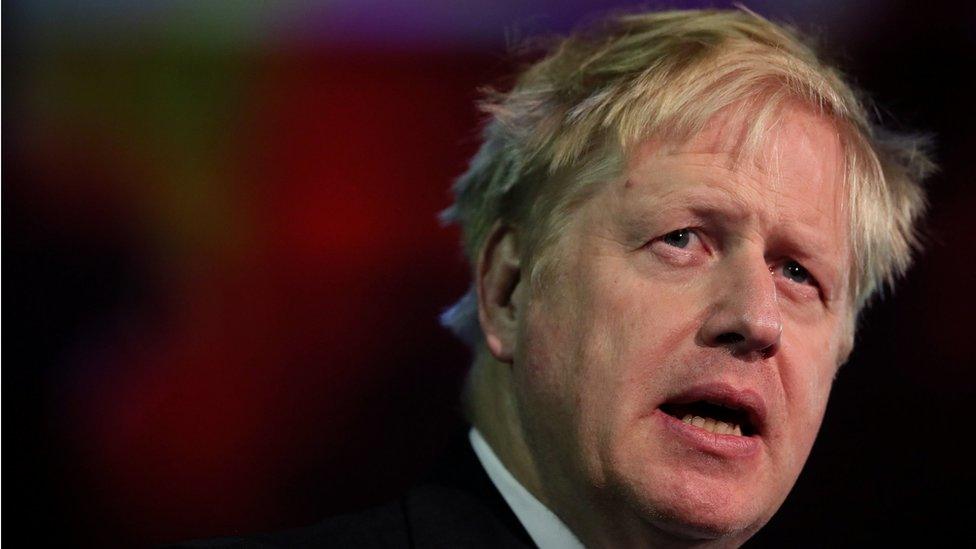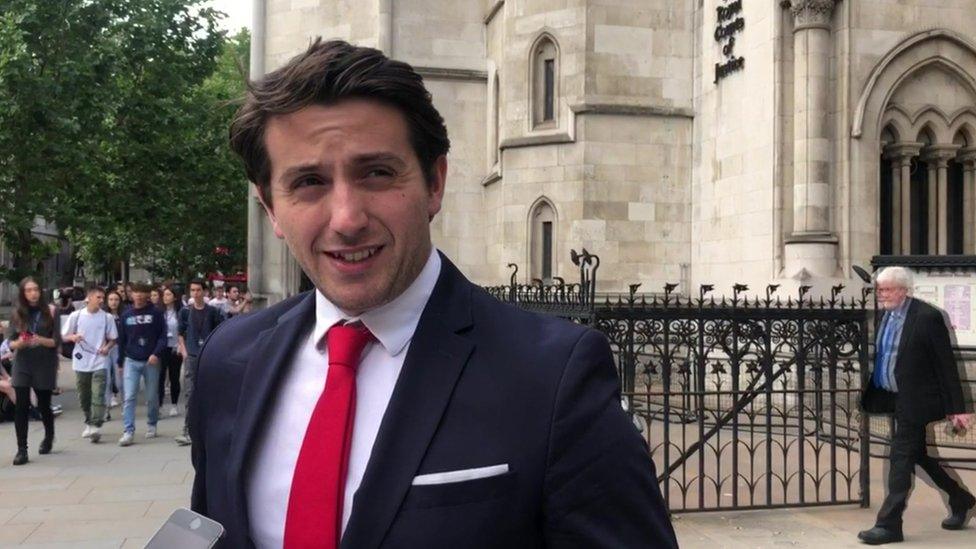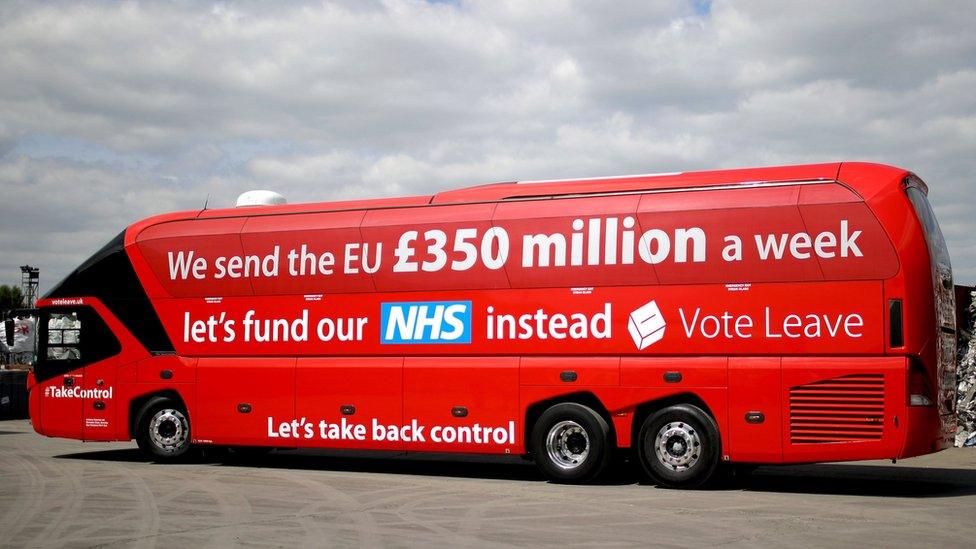Brexit: Boris Johnson accuser may appeal '£350m claim' ruling
- Published

Boris Johnson was a key figure in the 2016 Brexit referendum
A man who took Boris Johnson to court over claims he lied during the 2016 EU referendum says he could continue with his private prosecution despite judges ruling it had no legal justification.
Marcus Ball said he would "keep going" and appeal against the judgement, external if his lawyers advised him to do so.
The High Court said it was not proved Mr Johnson had been acting in a public office when claiming the NHS could get £350m extra a week after Brexit.
Mr Ball said this was "concerning".
Speaking outside the High Court, he rejected claims that his actions were politically motivated, insisting it did not matter whether Mr Johnson became the next prime minister and there were wider issues involved.
"You cannot have an MP, a public office-holding MP, on TV speaking to millions of people lying about how the public purse is being used," he told the BBC.
Mr Johnson's lawyers have always rejected claims he acted improperly or dishonestly in any way.
Last month, the High Court threw out Mr Ball's attempt to prosecute the Tory MP and ex-Mayor of London on three counts of misconduct in public office.
He had claimed Mr Johnson had brought his public office into disrepute by claiming repeatedly during the Brexit campaign that the UK gave the EU £350m a week and that this money could be recovered after the UK's departure and spent in full on the NHS.
Flawed decision
The £350m figure was used by the pro-Brexit Vote Leave group throughout the referendum. It also appeared on the side of the campaign bus, which urged the UK to "fund our NHS instead".
The former foreign secretary, who is the MP for Uxbridge and South Ruislip, was handed a summons to attend Westminster Magistrates' Court on 29 May.
But Lady Justice Rafferty and Mr Justice Supperstone, sitting in the High Court, ruled that this decision had been flawed and overturned it.

Marcus Ball said the case was not driven by politics
Outlining their reasons on Wednesday, they said it was "not sufficient" to argue that Mr Johnson made "contentious and widely challenged" statements about Brexit and the NHS while he was an MP and London mayor and that this therefore represented a "breach of duty".
They concluded it had not been demonstrated that Mr Johnson made the comments "as he discharged the duties of the office".
They pointed out that Parliament had passed legislation to make it a criminal offence for anyone to make false statements about a candidate during a campaign for the purposes of stopping them being elected.
But Parliament, they concluded, had "deliberately excluded" legislating to include false factual statements about statistics within the auspices of the criminal law.
"Parliament twice made a choice not to do precisely that which the interested party now seeks to achieve," they ruled.
'Abuse of trust'
But Mr Ball said he still believed Mr Johnson's actions constituted "an abuse of public trust" and he was "slightly concerned there has not been the level of engagement with our written submissions that I have would have preferred".
"Our legal argument is that Mr Johnson was carrying out several duties of an MP," he added.

"Why do we elect MPs? One of the things they are responsible for is determining what happens to public money, where it goes, how it is spent, meaning they have authority and expert knowledge when it comes to the public purse."
Mr Ball, who crowd-funded more than £300,000 to bring the case, said he would consult with his legal team before deciding whether it was appropriate to appeal against the ruling.
He rejected claims the case was "vexatious", saying he could not have known Mr Johnson would be on the verge of Downing Street when he first considered legal action in February.
"I don't really care whether he becomes PM or not - that is separate to our work.
"If he does or does not become PM, that does not affect this case. We still keep going based on the legal advice we get."
Mr Johnson's legal team argued that the offence of misconduct in public office should be about the secret abuse of power and there was nothing secret about the £350m claim, which they said had been challenged during the campaign.
The MP did not appear at the High Court hearing.